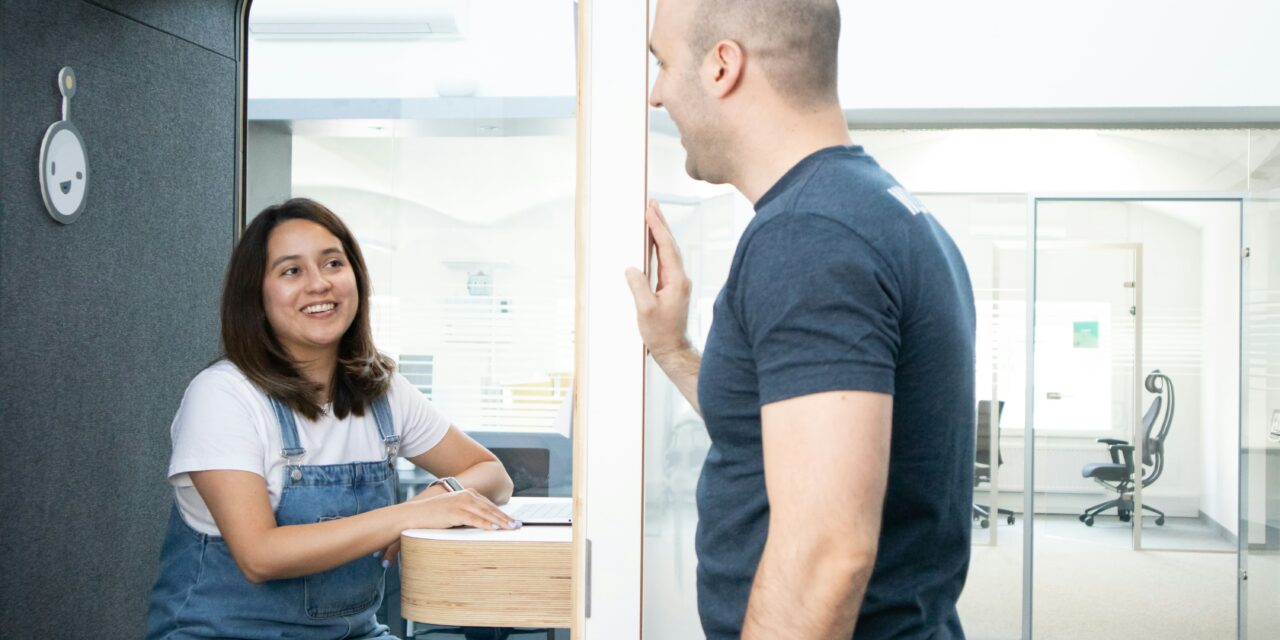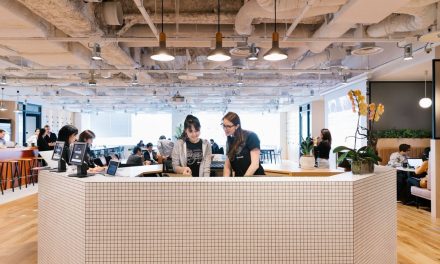While 91% of employees worldwide prefer to work remotely, many aren’t aware of the mental strain and discipline required to do so successfully. Enter coworking spaces.
Working from a coworking space offers more than just a change of scenery or professional networking opportunities. It can have profound, often unexpected health benefits that positively impact both the body and mind.
In a somewhat unexpected twist, many are discovering that coworking spaces provide a productive environment that contributes to well-being in surprising ways, combining the best of both worlds.
With that in mind, let’s dive into some of these unexpected health perks that might make coworking a game-changer for your work life.
Boosted Mental Health Through Social Interaction
Human beings are inherently social creatures. Working in isolation, whether from home or elsewhere, can gradually chip away at mental well-being.
In a coworking space, the simple presence of other people—even if you’re not directly interacting with them—provides a sense of community. It’s an underrated form of social interaction that gives people the psychological benefits of belonging without the burden of obligatory communication.
This ambient social atmosphere helps counteract feelings of loneliness and isolation that often accompany remote work. In particular, casual conversations at shared spaces, like the coffee machine or during community events, encourage spontaneous, lighthearted exchanges. These minor social interactions might seem trivial, but they contribute significantly to reducing stress levels and improving overall mood.
Subconsciously, our brains perceive these cues as similar to traditional offices, somewhat lessening the feelings of isolation traditionally associated with working remotely.

Improved Work-Life Balance
For many remote workers, one of the biggest challenges is creating a clear line between personal and professional life. The blurred boundaries can lead to overwork, burnout, and elevated stress levels.
Coworking spaces facilitate a healthier work-life balance by providing a designated workspace that distinctly separates your work from your personal life. When you leave the coworking space, you’re physically leaving work behind, making it easier to mentally disengage from work tasks. Plus, not everyone has enough space to create an isolated, dedicated office.
This spatial distinction significantly contributes to better mental health. It prevents the creeping sense of burnout that often occurs when work infiltrates home spaces, thus enabling you to enjoy your downtime more effectively.
Higher Self-confidence Through Effortless Productivity
Even though it might seem paradoxical, coworking spaces enact a certain positive type of pressure that makes us a tad bit more disciplined. Not only are you more focused on your actual tasks, but the sheer fact you can’t spend unlimited time there subtly nudges you towards efficiency.
Let’s say you want to pull off a classic 9-to-5 at the coworking space, but you notice emails and reports are wasting too much time. Before you know it, you’ll realize you’re sick of one task taking up so much of your workday and think of a solution. It can be using a Python script for updates, having a React document template for reports or just discovering new software.
Reduced Stress with Well-Designed Environments
A significant health advantage of coworking spaces lies in the careful design of the physical environment.
Unlike makeshift home offices or corporate cubicles, coworking spaces are often tailored to foster creativity, comfort, and productivity. High-quality lighting, ergonomic furniture, and an aesthetic design that blends natural elements all contribute to a soothing atmosphere. After all, people are paying to be there because they want to, so the space must be somewhat desirable.
Studies have shown that well-lit, aesthetically pleasing environments with ergonomic setups can significantly reduce stress and prevent physical ailments like back and neck pain. Likewise, access to natural light and even outdoor working areas help regulate circadian rhythms, thereby improving sleep quality and overall mood.
Exposure to New Ideas for Cognitive Growth
While the collaborative nature of coworking spaces is well-known for sparking professional connections, it also has profound implications for cognitive health. Being exposed to professionals from different industries broadens your perspective and helps break routine thinking patterns.
This cognitive stimulation helps keep the mind sharp and engaged, an essential factor in long-term mental well-being. One day, you might get valuable tips about getting a good price on car insurance and another, you’ll end up having a conversation with a developer about cloud security tools that you never even knew you needed. The point is—you never know what might happen.
The organic flow of new ideas and knowledge sharing can contribute to personal growth and increased motivation. This effect isn’t just about career growth; it also keeps your brain actively engaged, fighting off mental stagnation. Constant mental engagement has been linked ta o reduced risk of cognitive decline, making coworking a choice that supports cognitive health.

Better Nutrition Choices
Working from home often means easy access to the kitchen—a situation that can lead to constant snacking and poor food choices. Coworking spaces generally offer more controlled environments, limiting impulsive eating behaviors and providing an environment to eradicate bad WFH habits healthily.
Many coworking spaces offer access to healthy snacks or are located near eateries that provide nutritious options. The lack of an easily accessible pantry minimizes the temptation for mindless munching.
Additionally, scheduled breaks and a structured workday typical of coworking environments can help maintain a more regular eating schedule, which benefits metabolic health. Having a set routine around work often translates into more mindful eating, reducing stress-eating tendencies and contributing to overall health.
Decreased Risk of Chronic Health Conditions
The benefits of social interaction, physical movement, better nutrition, and reduced stress combine to lower the risk of chronic health conditions.
For example, elevated stress and physical inactivity are two major contributors to cardiovascular disease and metabolic disorders like diabetes. Through the direct promotion of a socially rich, physically active, and mentally engaging environment, coworking spaces help mitigate these risk factors.
Moreover, improved sleep quality, thanks to reduced stress and better work-life separation plays a crucial role in maintaining overall health. Good sleep is foundational to immune system health, hormone regulation, and cognitive function, reducing the long-term risk of multiple chronic conditions. So, before you know it, spending time in a coworking space can transform your life.
Opportunities for Mindfulness and Wellness Programs
Last but not least, many coworking spaces offer wellness programs, such as yoga classes, meditation sessions, or stress management workshops, that contribute directly to members’ physical and mental well-being.
These programs create a positive feedback loop—as stress decreases, productivity and mood improve, and as a result, members are likely to feel more satisfied and less overwhelmed.
Access to these wellness activities at the workplace itself makes it easier to incorporate health-promoting habits into a busy schedule, increasing the likelihood that these practices will be consistently maintained.
Not to mention, this directly ties into the social aspect of coworking. These activities will inevitably lead you to meet like-minded individuals, resulting in meaningful connections.
Conclusion
Coworking spaces are not just an alternative workspace; they offer a health-conscious approach to working remotely. Through improved social interactions, increased physical activity, thoughtfully designed environments, and opportunities for mindfulness, coworking spaces provide benefits that extend far beyond professional growth.
For those who work remotely but crave balance, health, and productivity, the coworking model presents an unexpectedly wholesome solution.









